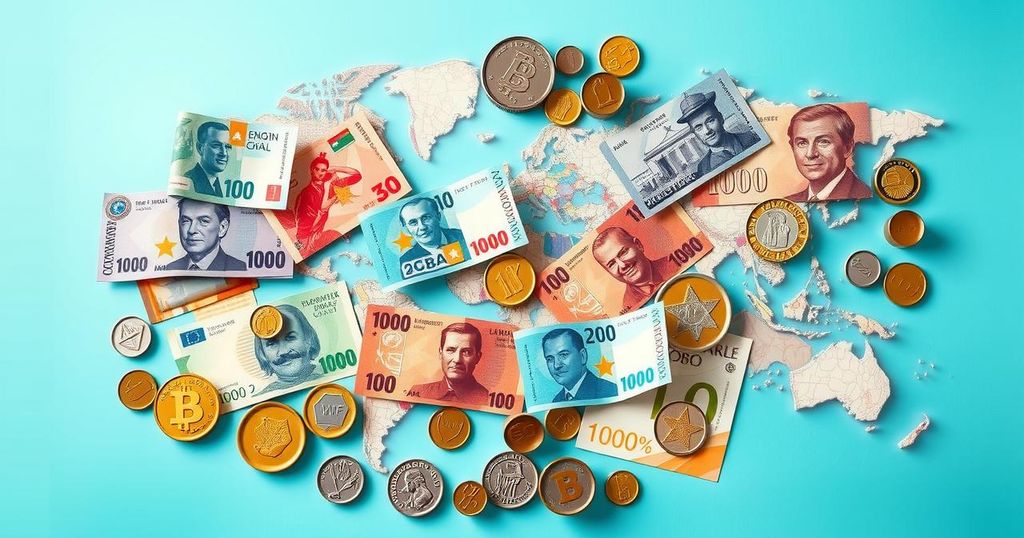Javier Milei faces challenges in lifting strict currency and capital controls in Argentina, which hinder foreign investment. While some restrictions have been eased, significant barriers remain ahead of the midterm elections in 2025. These controls factor heavily into negotiations with the IMF, creating uncertainty regarding future economic strategies amid declining foreign investments and high inflation rates.
Javier Milei’s presidency has encountered significant challenges due to stringent currency and capital controls, which hinder foreign investment in Argentina. Despite easing some restrictions in his first year, there is little indication that these rules, which have persisted for six years, will be swiftly removed as he approaches the upcoming midterm elections in 2025.
The continuity of currency controls is crucial for Milei as Argentina engages in discussions with the International Monetary Fund to replace its current US$44-billion agreement expiring in December. Futures trading indicates that investors anticipate ongoing peso depreciation, as the current peg set by the government is lower compared to inflation rates. Concerns have arisen regarding the potential for these restrictions to last until after the elections, where Milei aims to bolster voter support.
Foreign direct investment has significantly diminished under these conditions, with inflows plummeting to US$89 million in 2024, the lowest since 2003. Additionally, Argentina experiences a private sector current account deficit of US$952 million, tripling from the previous shortfall. Expectations for foreign investments in 2025 stand at US$1.4 billion, reflecting the impact of current policies on investor confidence.
Milei’s government is not likely to lift currency restrictions before midterm elections, as officials wish to avoid exacerbating inflation volatility. Milei indicated that there would be no controls post-January 1, 2026, hinting at a possible acceleration of the removal linked to IMF funding, creating a complex interplay of actions necessary to alleviate current economic pressures.
Key restrictions currently faced by investors include:
– Cross-restriction rule: Prohibition on purchasing dollars 90 days before or after foreign transactions on the parallel market.
– Mandatory bank accounts: Requirement to deposit dollars acquired through securities in banks.
– Transaction limits: Daily purchases limited to 200 million pesos (approximately US$190,000) with prior notification to the Central Bank.
– One-day parking: Assets must be held for one day before converting to dollars.
– Savings and expenses: Restrictions on foreign currency purchases for savings and capped payments of US$200 on credit card transactions abroad.
– Dividends: Restrictions on transferring dividends abroad for multinational companies.
– Imports: Access to dollars was also reduced, elongating the wait for import payments to an average of 30 days.
Recent regulations have further tightened capital movement, with the Central Bank barring banks from selling corporate bonds purchased with foreign capital. Additional measures have altered the available time for agricultural exporters to sell foreign currency to benefit from export tax cuts. The Central Bank has also reduced the peso’s depreciation rate, adversely affecting exporters who must sell dollars at a rate lower than the inflation rate.
Concerns linger regarding the potential consequences of lifting these restrictive controls, which could lead to severe peso depreciation and exacerbate inflation rates. While annual inflation has decreased significantly from 211 percent to 118 percent during Milei’s presidency, Argentina continues to confront a low net reserve level of approximately US$28.7 billion, significantly affecting its economic recovery.
Javier Milei’s administration is navigating complex currency and capital controls that stifle foreign investment in Argentina. With critical discussions with the IMF looming, the timeline and strategy for lifting these restrictions are pivotal for the country’s economic prospects and investor confidence. As Milei approaches midterm elections, the balancing act of managing inflation while facilitating foreign capital inflow remains his foremost challenge.
Original Source: www.batimes.com.ar






